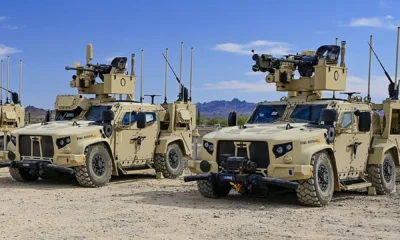Comment
President Irro’s Strategic Cabinet Reshuffle

Somaliland’s President Abdirahman Mohamed Abdullahi Irro is set to announce his first major cabinet reshuffle since assuming office on December 12, 2024. According to closely guarded sources from within the presidency, seven influential heads of key institutions will be replaced by seasoned, meticulously vetted national figures. This bold initiative arrives as a timely assertion of Irro’s leadership, underlining his silent yet strategic approach to governance.
President Irro, a figure known for his calculated silence and diplomatic restraint, has watched patiently from the sidelines, assessing the efficacy of his initial cabinet appointments against his broader national vision and key campaign promises. Observers note this reshuffle as a testament to Irro’s long-term strategic planning, reflecting a deep understanding of Somaliland’s internal dynamics and the critical necessity of effective governance.
Indeed, Irro’s tenure thus far has defied typical political theatrics, opting instead for subtlety and strategic depth—traits forged from decades of diplomatic service, including an impressive stint as a diplomat in Moscow and 12 formidable years as Speaker of the Somaliland Parliament. This move, therefore, should come as no surprise to those familiar with his modus operandi: measured, decisive, and devoid of unnecessary public posturing.
Yet, despite—or perhaps because of—his methodical approach, Irro has attracted criticism from vocal segments on social media, which often mistake silence and careful consideration for weakness or inactivity. These critics overlook the nuanced complexity inherent in political leadership and international diplomacy, domains where overt noise rarely equates to meaningful action.
This reshuffle, described by insiders as a “deep clean,” aims not only to realign governmental bodies more closely with Irro’s vision but also to underscore his commitment to results-oriented governance. It sends a powerful signal internally and externally: that Somaliland’s leadership is capable of self-assessment, accountability, and strategic recalibration. It reinforces the president’s position as a pragmatic leader who values tangible results over superficial optics.
In a region increasingly defined by instability and political theatrics, Irro’s deliberate pace and considered silence might yet prove Somaliland’s greatest assets in its quest for international recognition and internal coherence. This reshuffle, therefore, could be the defining moment of his presidency—an indication that Somaliland finally has a leader whose actions speak louder than his words.
Why President Irro’s Quiet Brilliance Unsettles the Noise-Makers
Comment
What Forced an Emergency Abiy–Hassan Sheikh Meeting

Behind Closed Doors in Addis Ababa: What Abiy Ahmed and Hassan Sheikh Really Discussed.
At first glance, the officials framed Sunday’s talks as a routine strengthening of bilateral cooperation — emphasizing shared priorities such as regional stability, economic collaboration and mutual development goals. But beneath the surface, the meeting carries urgency rooted in escalating regional and bilateral tensions that have strained relations between Mogadishu and Addis Ababa.
Somalia and Ethiopia have a long and complex history of diplomatic friction, particularly around sovereignty and access to strategic infrastructure. Relations were severely tested after Ethiopia signed a deal with Somaliland — that Mogadishu considers part of Somalia — to lease access to a Red Sea port, potentially in exchange for future recognition.
That agreement in early 2024 sparked uproar in Mogadishu and risked destabilizing their relationship. Although both governments later agreed to restore diplomatic ties through an Ankara‑brokered declaration in late 2024, many underlying disputes remain unresolved.
Multiple credible sources indicate that President Hassan Sheikh’s visit was convened swiftly to address emerging internal political rifts within Somalia itself, especially in the strategically sensitive Jubaland region.
Mogadishu has been reported to consider establishing a parallel administration in the Gedo region, a move that might upend existing negotiations with the Jubaland leadership and alarm Ethiopia, which prefers negotiated settlement frameworks. Ethiopian officials have reportedly warned that unilateral action in Jubaland could escalate instability along their shared border.
Ethiopia — Africa’s most populous landlocked nation — has strategic interests that extend beyond traditional diplomacy. Addis Ababa seeks secure access to maritime routes and stable borders, and it has weighed heavily in Somali internal politics when it perceives threats to regional equilibrium. President Mohamud’s visit is therefore about resetting and rebalancing bilateral ties at a moment when Somalia’s internal dynamics intersect with Ethiopia’s strategic calculations.
A continuing shared priority is counter‑insurgency cooperation, particularly against Al‑Shabaab militants. Ethiopia has a vested interest in Somalia’s stability given spillover security risks. Strengthening operational and intelligence links remains an undercurrent of these talks, even if not always front‑and‑center in official statements.
While publicly cast as a routine working visit to deepen cooperation, the meeting was urgently convened to manage acute diplomatic friction and pre‑empt further instability — both within Somalia’s political landscape and in the broader Horn of Africa context. Leaders in Mogadishu and Addis Ababa have significant incentives to address these pressures before they escalate into deeper conflict or diplomatic rupture.
The Horn of Africa on the Precipice: Ethiopia-Egypt Conflict Looming
Exclusive: Egypt Deploys Troops to Somalia—Next War Begins in the Horn
Comment
Somali American Reflections: Identity, Belonging, and Between Two Worlds

Not fully American. No longer fully Somali. The diaspora story is more complicated than slogans.
To be Somali in America is to live in a permanent in-between—caught between gratitude and grief, opportunity and erasure. For decades, Somali immigrants have been discussed largely through statistics: refugees resettled, businesses opened, remittances sent home. What often gets lost is the interior life of the diaspora—the quiet negotiations of identity, belonging, and survival that unfold far from headlines.
Many Somali Americans arrived fleeing war, not chasing a dream. The United States offered safety, education, and a chance to rebuild, but integration came with invisible costs. Parents learned to navigate an unfamiliar system while children adapted faster, absorbing American culture at a pace that widened generational gaps. Language became both a bridge and a wound. Success, when it came, was often accompanied by a lingering sense of displacement.
In cities like Minneapolis, Columbus, Seattle, and Lewiston, Somali communities built parallel worlds—mosques, malls, cafés, and media ecosystems that preserved cultural memory while buffering against exclusion. These spaces became lifelines, but they also fueled a persistent question: is integration about becoming invisible, or about being accepted while remaining distinct?
Public debate has rarely been gentle. Somali Americans have found themselves at the center of national arguments about immigration, security, welfare, and identity politics—often spoken about, rarely spoken with. Political rhetoric, especially during election cycles, has treated Somali communities as symbols rather than people, flattening complex lives into talking points. The result is a constant pressure to prove loyalty, productivity, and worth.
Yet within this tension lies resilience. Somali entrepreneurs have transformed neglected neighborhoods. Students have risen to prominence in law, medicine, technology, and public office. Artists and writers are reshaping narratives, telling stories that resist victimhood without denying trauma. Faith, often misunderstood, has anchored many through moral clarity and communal responsibility rather than isolation.
Still, the emotional arithmetic remains unresolved. Many Somali Americans carry survivor’s guilt—success shadowed by relatives still struggling back home. Others wrestle with identity fragmentation, feeling “too Somali” in America and “too American” in Somalia. Integration, it turns out, is not a destination but a continuous negotiation.
What Somali American reflections offer is not a demand for sympathy, but a call for nuance. Integration is not assimilation by force, nor separation by fear. It is a shared process that requires space, patience, and honest recognition of complexity.
The diaspora story is not one of failure or triumph alone. It is a story of adaptation under pressure, dignity under scrutiny, and belonging still in progress. Understanding that reality is not just important for Somali Americans—it is a test of how inclusive the American promise truly is.
Comment
Berbera on the Radar: U.S. Drone Killers, Bases, and a Strategic Shift
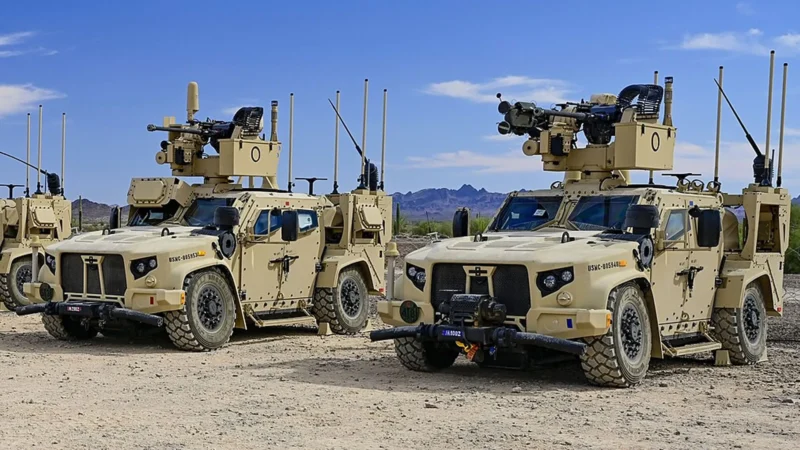
U.S. Drone Hunter-Killer Systems Linked to Berbera as Washington Weighs Deeper Somaliland Security Role.
As Washington finalizes a $900 billion defense policy bill and accelerates its global force posture, Somaliland’s port city of Berbera is emerging as a focal point in a widening security calculus that stretches from the Red Sea to the Horn of Africa. At the center of that discussion is the Marine Air Defense Integrated System, or MADIS—a new drone hunter-killer platform now entering full-rate production for the U.S. Marines.
MADIS transforms two Joint Light Tactical Vehicles into a mobile, short-range air defense team designed to counter drones, helicopters, and low-flying aircraft. One vehicle is optimized for fixed-wing and rotary threats; the other is dedicated to counter-UAS missions.
Armed with Stinger missiles and a 30mm cannon, the system replaces older MANPADS setups, allowing Marines to engage targets without dismounting. After years of trials, the first full-rate production variant debuted in September, followed by live-fire exercises at Twentynine Palms and during Exercise Balikatan in April 2025.
While no official deployment announcement has been made, regional and Western security assessments increasingly link advanced counter-drone capabilities to potential basing or rotational presence near Berbera. Somaliland officials has not publicly stated their openness to hosting a U.S. military facility in the strategic coastal city, and U.S. policymakers have discussed—without confirmation—forms of partial recognition tied to access and security cooperation.
The strategic drivers are clear. Concerns over instability between Ethiopia and Eritrea, the spillover from Sudan’s war, and persistent threats from Al-Shabaab and Houthi activity near critical sea lanes have sharpened U.S. interest along Somaliland’s coast. Western intelligence has repeatedly highlighted Berbera’s value for maritime security and logistics, a view reinforced by DP World’s long-term investment in the port and its need for a hardened security environment.
MADIS fits this picture. Its mobility and layered defenses are tailored for contested littorals where drones and low-altitude threats proliferate. The system’s manufacturer, Kongsberg Defence & Aerospace, designed MADIS with upgrade paths for emerging threats—an attribute well suited to a region where tactics evolve rapidly.
The broader alignment is also notable. Somaliland has expanded security ties beyond Washington, including recent coastal cooperation with Taiwan—another signal of Hargeisa’s bid to position itself as a reliable partner in a crowded strategic theater.
Taken together, these strands suggest a cautious but meaningful shift. Berbera is increasingly viewed not only as a commercial gateway, but as a security node—one that could host advanced air defense assets if U.S.–Somaliland cooperation deepens.
Whether that culminates in a formal base or rotational deployments remains undecided. But the direction is unmistakable: in an era of drone warfare and maritime competition, Berbera’s strategic value is rising—and Washington is planning accordingly.
Comment
New Year’s Eve Terror Plot Stopped: FBI Says LA Was Hours From Coordinated Bombings
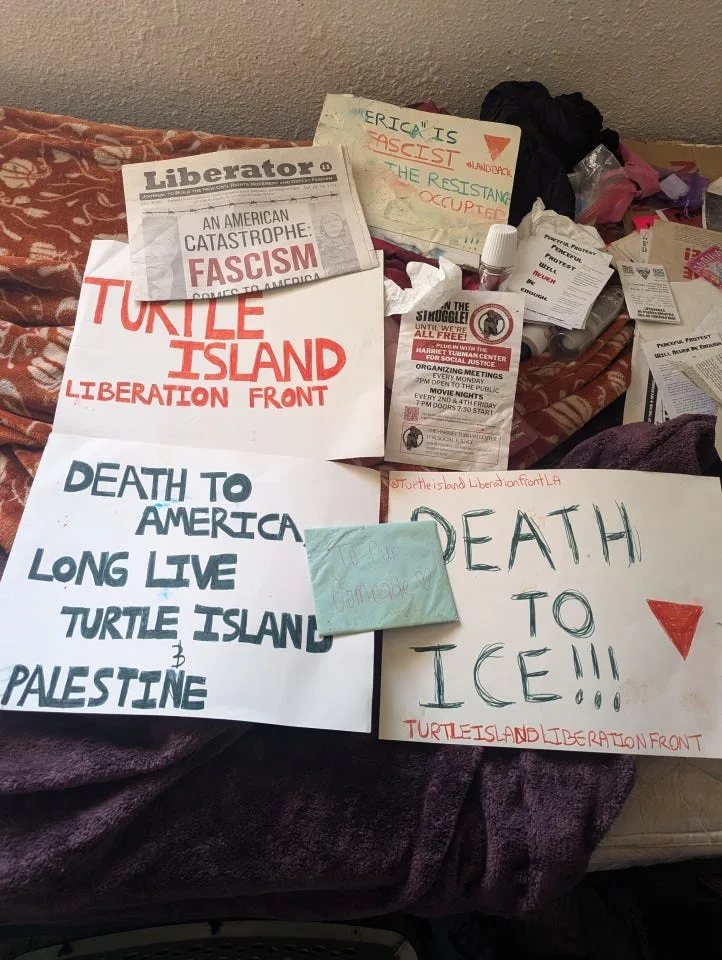
Officials say the plot was “credible,” coordinated, and ideological. What the FBI stopped in the California desert reveals how fast fringe movements can turn violent.
Federal authorities say they disrupted a planned New Year’s Eve terror attack in Southern California, arresting five individuals linked to a radical pro-Palestinian extremist cell accused of preparing coordinated bombings across the Los Angeles region. The case, now unfolding in federal court, underscores growing concerns among U.S. security agencies about the intersection of global political causes and domestic extremist violence.
According to law enforcement officials, four suspects were arrested last week in Lucerne Valley, a remote area of the Mojave Desert east of Los Angeles, where they were allegedly testing improvised explosive devices. A fifth suspect was taken into custody separately in New Orleans and is believed to be connected to the same network. Investigators describe the threat as “credible,” with evidence suggesting the group was moving from ideological planning to operational execution.
The four defendants charged in California — Audrey Ilene Carroll, 30; Zachary Aaron Page, 32; Dante Gaffield, 24; and Tina Lai, 41 — face federal counts including conspiracy and possession of an unregistered destructive device. Prosecutors allege the group intended to plant explosive devices at multiple sites across Los Angeles and Orange County, targeting at least five businesses identified as logistics or commercial centers, timed to detonate at midnight on New Year’s Eve.
Beyond the holiday plot, court filings indicate the suspects also discussed future attacks against U.S. Immigration and Customs Enforcement facilities and vehicles, including the use of pipe bombs early next year. In recorded communications cited by prosecutors, Carroll allegedly said such attacks would “take some of them out and scare the rest,” language that federal officials say highlights the group’s willingness to escalate violence against law enforcement.
The suspects are accused of belonging to an offshoot of the Turtle Island Liberation Front (TILF), a little-known but increasingly scrutinized group that blends pro-Palestinian activism with anti-government, anti-capitalist, and anti-law-enforcement ideology. According to the FBI, the defendants communicated through an encrypted Signal chat called “Order of the Black Lotus,” which one member reportedly described as “radical.” Investigators say searches of the suspects’ homes uncovered extremist propaganda, TILF-linked materials, and a detailed outline of the alleged attack plan.
Attorney General Pam Bondi described the arrests as the prevention of “a massive and horrific terror plot,” while FBI Director Kash Patel said the case illustrates how ideological extremism — particularly when paired with calls for “direct action” — can rapidly translate into domestic terrorism. Los Angeles Police Chief Jim McDonnell echoed that assessment, crediting inter-agency coordination with averting what he called a potential tragedy.
The case also complicates broader public debates around protest movements and political activism. While TILF publicly frames itself around decolonization, indigenous sovereignty, and Palestinian solidarity, federal officials argue the group’s rhetoric explicitly rejects peaceful protest and embraces violence as a necessary tool.
For U.S. authorities, the foiled plot serves as a warning rather than a conclusion. Investigators say the inquiry remains active, with efforts underway to determine whether additional individuals or cells were involved. As New Year’s Eve approaches, the arrests reinforce a stark reality: the most serious terror threats are not always imported — they can grow, organize, and arm themselves quietly at home.
Comment
Iraq Blinks, Militias Advance: Iran’s Axis Was Never Broken

Iran-Backed Militias Tighten Grip on Iraq, Underscoring Tehran’s Enduring Regional Strategy.
When Iraq’s government announced this week that it would freeze assets linked to Lebanese Hezbollah and Yemen’s Houthi movement, the decision was initially framed as a quiet but meaningful assertion of sovereignty. Baghdad, the narrative went, was finally drawing a line between the state and Iran’s regional web of militias.
The illusion lasted only hours. The prime minister’s media office abruptly reversed the move, blaming an unspecified “error.” The episode revealed not Iraqi resolve, but its limits.
The rapid climbdown offered a clear reminder that Iran-backed militias remain deeply embedded in Iraq’s political system—and retain the leverage to block any step that threatens their interests or those of Tehran. This is no longer just an internal Iraqi concern. With Syria weakened after two years of war and Israeli strikes, Iraq has become a central pillar in Iran’s effort to preserve and rebuild its regional axis.
Israeli security planners have long warned that militias aligned with Iran possess missile and drone capabilities positioned in Iraq’s vast western deserts. From there, Israel’s northern regions are less than 400 kilometers away.
In the event of renewed confrontation between Israel and Iran, those areas could serve as a forward launch zone. While Iraqi militias largely stayed on the sidelines after limited action in late 2023, there is little reason to assume restraint would hold in a future escalation.
Contrary to the perception that Iran’s proxy network has been decisively weakened, recent political developments in Iraq suggest the opposite. In November’s parliamentary elections, parties tied to Shi’ite militias made significant gains.
Asaib Ahl al-Haq’s Sadiqoun bloc secured 27 seats; the Badr Organization won 18; and Huquq, linked to Kataib Hezbollah, took six. Together, these factions form the backbone of the Coordination Framework, now the dominant force in parliament.
Prime Minister Mohammed Shia al-Sudani, whose bloc lacks a governing majority, depends on this framework to remain in power. Its most influential figure, former prime minister Nouri al-Maliki, has worked systematically to shield militia-linked actors by embedding them within formal political institutions.
The result is a hybrid system in which armed groups convert battlefield influence into legislative authority.
The consequences are structural. Iraq’s state functions, but only within boundaries set by militia power. When critical interests are at stake—sanctions, regional alignment, or Iran’s proxies—the formal government yields.
As one Arab Weekly analysis put it, Iraq now operates as a framework through which powerful political and militia networks rule.
For Israel, the lesson is sobering. The belief that Iran’s regional project has collapsed is premature. It has been damaged, not dismantled. Iraq’s trajectory shows that Tehran’s model—combining elections, paramilitary force, and strategic patience—remains intact, and increasingly effective.
Comment
Ahmed al-Ahmed and the Code of the Righteous: Why His Hanukkah Heroism Matters

The Code of the Righteous: Why Ahmed al-Ahmed’s Heroism Is the Antidote We Need.
If there were a Jewish Nobel Prize for saving Jewish lives, Ahmed al-Ahmed would have just won it.
On the eve of Hanukkah, as Jewish families gathered on Bondi Beach to light candles and celebrate openly, gunfire shattered the night. In the chaos, one man ran toward the danger. Ahmed al-Ahmed, a 43-year-old Sydney fruit shop owner and father of two, tackled a gunman from behind, wrestled away his weapon, and forced him to retreat.
He was shot and hospitalized. His action likely saved dozens—perhaps far more.
This moment belongs in the moral tradition Jews know well: the tradition of the Righteous Among the Nations.
Historically, that title is reserved for non-Jews who risked everything to save Jews during the Holocaust—figures like Oskar Schindler, Raoul Wallenberg, Chiune Sugihara, Irena Sendler, and the Ulma family. Different century. Different weapons. Same moral equation.
Jews gather publicly as Jews. Someone decides that visibility itself is a crime. And one person refuses to look away.
That is not politics. That is not “tension.” That is hatred—and courage colliding in real time.
There is something profoundly Hanukkah about Ahmed al-Ahmed’s choice. Hanukkah is not a metaphor. It is a demand. A candle does not debate darkness. It pushes back. Light is not symbolic—it is active, stubborn, and costly.
So what should the Jewish world do when a non-Jew runs into gunfire to save Jewish lives?
First: say thank you—clearly and unapologetically. Not with vague language about “shared humanity,” but with honest words. He saved lives. Gratitude should be loud, especially in an age that rewards moral cowardice dressed up as nuance.
Second: honor him. Publicly. Formally. Memorably.
Jewish institutions—in Australia and globally—should elevate Ahmed al-Ahmed as a living example of moral clarity under pressure. He didn’t issue statements. He didn’t calculate optics. He acted.
And yes, Israel should acknowledge him.
Not because Jews need saviors—but because Jews remember righteousness. Israel exists not only as a state, but as the sovereign memory of the Jewish people. That memory includes those who stood with Jews when it was dangerous, inconvenient, or unfashionable.
Recognition doesn’t require copying Holocaust-specific frameworks. It could mean an invitation to Jerusalem. A meeting with Israel’s president. A national citation for civilian bravery. A tree planted in his honor. A public declaration that saving Jewish life is an act the Jewish people record and repay with lasting gratitude.
This matters for another reason.
Extremists will try to weaponize the Bondi Beach attack—turning it into collective blame, suspicion, and hate. Jews know where that road leads. Ahmed al-Ahmed’s story is the antidote.
There are people in every community who choose darkness. And there are people in every community who choose light.
The gunman chose darkness. Ahmed chose light.
Hanukkah’s lesson is not triumphalism. It is resolve. The miracle was not only that the oil lasted—but that the candles were lit anyway, in a world that preferred Jews to disappear quietly.
This year, Jews everywhere are being asked—sometimes explicitly—to make themselves smaller, quieter, less visible.
The answer is no.
The answer is light.
Ahmed al-Ahmed did not write an essay on coexistence. He did not speak at a conference. He saw Jews under attack and acted.
That is what righteousness looks like.
This Hanukkah, as candles are lit in Sydney, Jerusalem, New York, and beyond, one truth is clear:
When the moment came, a fruit shop owner ran toward the fire—and reminded the world what courage looks like.
Comment
Drone Strike Kills Six UN Peacekeepers in Sudan
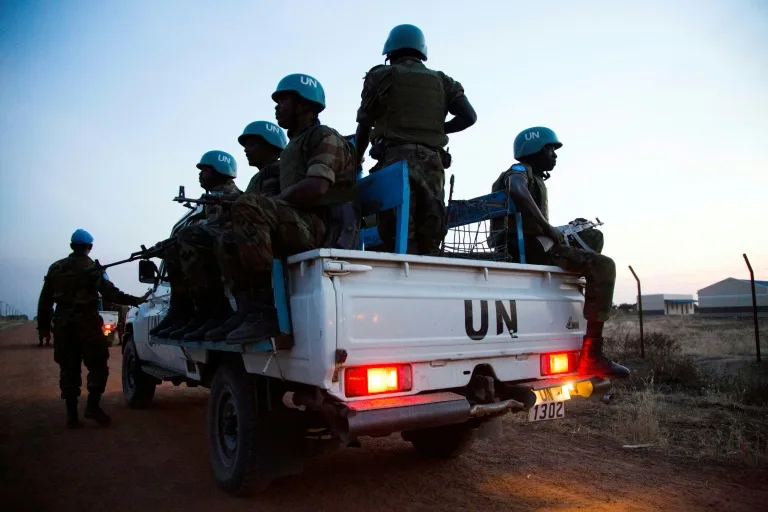
A drone strike on a United Nations peacekeeping base in Sudan’s South Kordofan region has killed six UN soldiers from Bangladesh and wounded at least six others, in what the UN has described as a potential war crime and a stark escalation in the country’s deepening conflict.
The attack struck a camp belonging to the United Nations Interim Security Force for Abyei (UNISFA) in Kadugli, the capital of South Kordofan state, on Saturday. Four of the injured are reported to be in critical condition. All casualties were Bangladeshi peacekeepers, according to the UN mission.
UN Secretary-General António Guterres condemned the strike as “horrific” and warned that deliberate attacks on peacekeepers may constitute war crimes under international law. He called for accountability, underscoring the growing risks faced by international forces operating in Sudan’s expanding war zones.
Bangladesh’s interim leader, Muhammad Yunus, confirmed the death toll and said his government was “deeply saddened” by the loss. Dhaka urged the UN to provide urgent medical and logistical support to its personnel and pledged full assistance to the families of those killed.
UNISFA operates in Abyei, a long-disputed territory between Sudan and South Sudan, but the strike occurred further south in Kadugli—a city that has been under siege for more than a year and where famine was declared earlier this month. Medical officials and eyewitnesses confirmed that a drone directly hit the UN facility while personnel were inside.
The Sudanese army released video footage showing fires and smoke rising from the UN base and accused the paramilitary Rapid Support Forces (RSF) of carrying out the attack. Sudan’s Sovereignty Council, led by army chief General Abdel Fattah al-Burhan, described the strike as a “dangerous escalation” and warned it threatened international peacekeeping operations across the country.
The RSF swiftly denied responsibility, rejecting the allegations as “false accusations” and disputing claims that its forces carried out a drone attack. The exchange highlights the fog of war now surrounding Sudan, where both sides routinely trade blame amid a rapidly deteriorating security environment.
Sudan’s Prime Minister Kamil Idris went further, calling the RSF a “terrorist rebel militia” and urging the United Nations to pursue legal action against those responsible. His statement reflects mounting pressure on international bodies to reassess how they engage with armed actors in the conflict.
The strike comes as the RSF consolidates territorial gains. After capturing El-Fasher in late October—the army’s last major stronghold in Darfur—the group has pushed eastward into the oil-rich Kordofan region. Control of Kordofan is strategically vital, serving as a corridor between Darfur and central Sudan and enabling troop movements and supply lines.
Analysts warn that the RSF’s advance is designed to break through army defenses in central Sudan and potentially pave the way for a renewed offensive toward Khartoum. The use of drones, once rare in the conflict, now signals a shift toward more sophisticated and indiscriminate warfare.
Just days earlier, airstrikes on a kindergarten and hospital in Kalogi, also in South Kordofan, killed at least 114 people, including 63 children, according to the World Health Organization. The cumulative toll underscores how civilians and humanitarian workers are increasingly caught in the crossfire.
Since the war began in April 2023, tens of thousands have been killed, millions displaced, and Sudan has plunged into one of the world’s worst humanitarian crises. Diplomatic efforts to end the conflict have repeatedly stalled. Although U.S. President Donald Trump said last month that he intended to move toward ending the war following talks with Saudi Crown Prince Mohammed bin Salman, no concrete initiative has yet emerged.
The drone strike on UN peacekeepers marks a grim milestone. It not only deepens Sudan’s isolation but also raises urgent questions about the viability of international missions operating amid an unchecked, fragmenting war—one where even neutral forces are no longer spared.
Comment
Trump’s Africa Doctrine, China’s Shadow, and Why Somaliland Sits in the Crosshairs

Donald Trump’s new National Security Strategy does something Washington avoided for years: it treats Africa not as a humanitarian afterthought, but as a frontline in great-power competition.
The document frames the continent through three lenses — China, Russia, and security of trade routes — and argues that US engagement must shift from aid language to hard interests: ports, minerals, Red Sea access, and counterterrorism.
For Somaliland, this framing is not abstract. It quietly moves Hargeisa from the margins of US policy into the centre of a strategic map that already pits Washington against Beijing and Ankara along the Red Sea and Gulf of Aden.
Trump’s strategy casts China and Russia as “revisionist powers” using loans, infrastructure and arms to gain leverage over ports and resources. In Africa, that means Chinese-built terminals, opaque debt for rail and highways, and security deals that blend commercial presence with military access.
Overlay that with our previous analysis of Turkey’s projection from Mogadishu — ports, bases, and missile-adjacent testing spaces on Somali soil — and the pattern is clear: the southern Somali coastline is being folded into a Eurasian strategic architecture that is neither transparent nor Western-aligned.
Ankara and Beijing use similar tools: long concessions, state-linked companies, and security “assistance” that blurs where sovereignty ends and dependency begins.
Trump’s Africa doctrine, whatever one thinks of him, is built to counter exactly this model. It calls for:
Protecting sea lanes and chokepoints.
Challenging “predatory” infrastructure and port deals.
Backing partners that can police their territory and coasts.
That is where Somaliland becomes the missing piece.
Unlike Mogadishu, Somaliland has demonstrated something US strategists claim to want: a relatively stable democracy, a functioning coast guard, and a deep-water port at Berbera already tied into GCC and Western commercial networks.
The Berbera corridor sits between two forms of proxy geography: Houthi-influenced Yemen to the north and foreign-captured Somalia to the south.
Recognized or not, Somaliland already behaves like the kind of partner the new strategy describes — one that can secure an 850-kilometre coastline without inviting Chinese or Turkish basing rights.
This is exactly the logic that surfaced in the recent US Senate focus on African maritime security and in Senator Ted Cruz’s description of Somaliland as a “critical U.S. maritime security partner.”
The Senate conversation is, in many ways, the operational translation of Trump’s doctrine: if you are serious about contesting China and Russia along the Red Sea, you cannot ignore the one jurisdiction that is actually keeping its water relatively clean.
Compare the three vectors now on the table:
China’s Africa play: ports, minerals, and dual-use infrastructure extending influence from the Indian Ocean to the Atlantic, often through weak or indebted states.
Turkey’s Somali corridor: an offshore strategic ecosystem — training bases, ports, and missile testing potential — that sits outside NATO constraints but benefits from its cover.
Trump’s US strategy: a call to back “sovereign, resilient states” that resist coercive loans, secure their coasts, and align with US commercial and security interests.
Somaliland sits at the intersection of all three. Beijing views Hargeisa’s ties with Taiwan as an intolerable breach; Mogadishu acts as China’s political proxy in trying to box Somaliland out of recognition; Turkey uses southern Somalia to contest the same waters Berbera seeks to stabilize.
The US, for now, formally clings to the “one Somalia” fiction, but its own strategic logic points in another direction: toward partners that actually deliver security outcomes.
This is where Trump’s strategy and the Cruz-style Senate framing quietly converge. Both are less interested in lines on a colonial map and more concerned with who can keep global trade moving and keep Chinese-built bases, Iranian proxies, and jihadist networks from merging into a single threat picture along the Red Sea corridor.
In that world, the question for Washington becomes brutally simple:
Do you continue to route your Red Sea security through a fragile federal government in Mogadishu that cannot control its coastline and is increasingly entangled with Chinese and Turkish designs — or do you start treating Somaliland as the democratic outpost that already fits your own written doctrine?
Trump’s Africa strategy, China’s expanding footprint, and the latest Senate hearings all point to the same conclusion: the frontline of US–China rivalry in the Horn is not theoretical, and Somaliland is no longer a peripheral actor.
It is the unrecognized state that matches the checklist in Washington’s own strategic documents — and the longer the US pretends otherwise, the more space it leaves for Beijing and Ankara to write the rules of the corridor first.
U.S. Senate Hearings Highlight Somaliland as Key to Maritime Security Strategy
-

 Analysis10 months ago
Analysis10 months agoSaudi Arabia’s Billion-Dollar Bid for Eritrea’s Assab Port
-

 Opinion17 years ago
Opinion17 years agoSomaliland Needs a Paradigm Change: Now or Never!
-

 Interagency Assessment4 days ago
Interagency Assessment4 days agoTOP SECRET SHIFT: U.S. MILITARY ORDERED INTO SOMALILAND BY LAW
-

 ASSESSMENTS9 months ago
ASSESSMENTS9 months agoOperation Geel Exposes the Truth: International Community’s Reluctance to Embrace Somaliland as a Strategic Ally
-
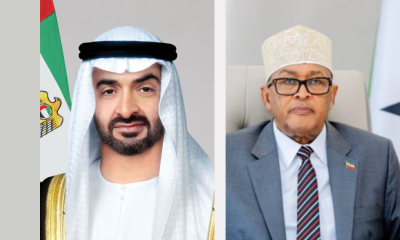
 Somaliland11 months ago
Somaliland11 months agoSomaliland and UAE Elevate Ties to Comprehensive Strategic Partnership
-

 EDITORIAL1 year ago
EDITORIAL1 year agoDr. Edna Adan Champions the Evolving Partnership Between Somaliland and Ethiopia
-
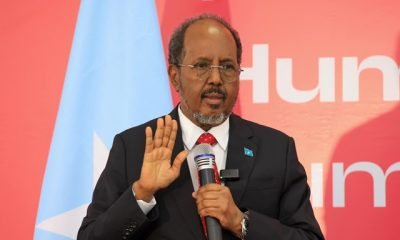
 ASSESSMENTS6 months ago
ASSESSMENTS6 months agoA Critique of the Hassan Sheikh Mohamud Administration and the Halane Enigma
-

 Africa2 years ago
Africa2 years agoHow Somaliland Could Lead the Global Camel Milk Industry










